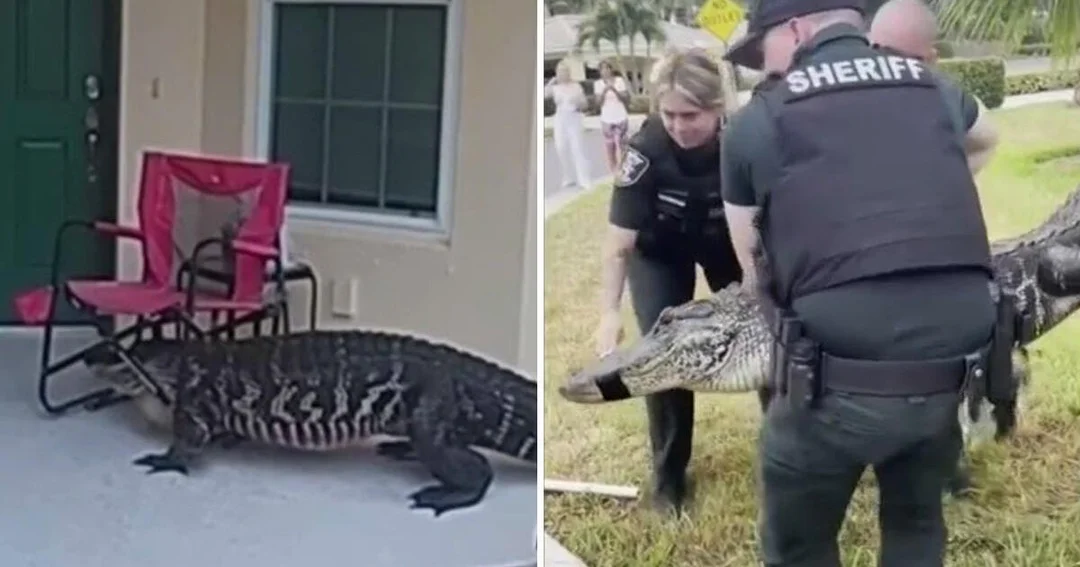
When Wild Alligators Turn Neighborhoods into Adventure Zones: What Really Happened?
In the sunny suburbs of Florida, everyday life can turn into a wild adventure when uninvited reptilian guests crash the party. Recent encounters with alligators roaming residential areas have captured national attention, highlighting the unpredictable clash between human habitats and Florida's thriving wildlife. These incidents not only entertain but also raise important questions about safety, conservation, and coexistence in one of America's most biodiverse states.
The story unfolded in Fort Myers' Tortuga neighborhood on a seemingly ordinary Friday morning. A large alligator was caught on a resident's doorbell camera, boldly moving door-to-door and even attempting to 'knock' by chomping at a front porch. The Lee County Sheriff's Office responded swiftly, sharing the footage on Facebook with a humorous caption: 'Knock knock! Your visitor is chomping at the bit to come in!!' Deputies and a state alligator trapper from the Florida Fish and Wildlife Conservation Commission worked together to secure the creature, eventually loading it into a pickup truck for relocation. This low-stakes battle ended without harm, but not before the alligator got its head stuck in an orange lawn chair, turning the scene into viral comedy gold.
Adding to the intrigue, a similar escapade occurred in Jacksonville just days earlier. A barefoot local wrangler named Mike Dragich, known on social media as Blue Collar Brawler, faced off with a massive alligator spotted in the median of Interstate 95/295. Video footage shows Dragich using a pole to engage the snapping beast amid rushing traffic, eventually wrestling it onto the shoulder and muzzling it with impressive bravado. The Jacksonville Sheriff's Office confirmed the event in a post, noting, 'If you thought you saw a barefoot man wrestling a giant alligator, your eyes weren’t playing tricks on you.' This daring confrontation underscores the risks involved when alligators venture into urban spaces, especially during their mating season in May or June, as reported by the Florida Fish and Wildlife Conservation Commission.
These incidents, while amusing, prompt deeper analysis. Florida's alligator population has rebounded thanks to successful conservation efforts, but as human development encroaches on wetlands, encounters are becoming more frequent. Compared to the Fort Myers event, which involved community cooperation and minimal danger, the Jacksonville showdown highlights individual heroism amid potential hazards—like traffic and the alligator's powerful tail whips. Such events serve as a reminder of the need for better wildlife management and public education to prevent tragedies, as seen in a recent fatal attack on Lake Kissimmee. Experts suggest that while alligators are a natural part of Florida's ecosystem, residents must stay vigilant and report sightings promptly.
In summary, these alligator adventures in Florida not only provide thrilling stories but also emphasize the delicate balance between humans and nature. What would you do if a wild gator showed up at your doorstep? Share your thoughts in the comments below and let us know if you've had any unexpected wildlife encounters—your stories could help raise awareness and spark important discussions.